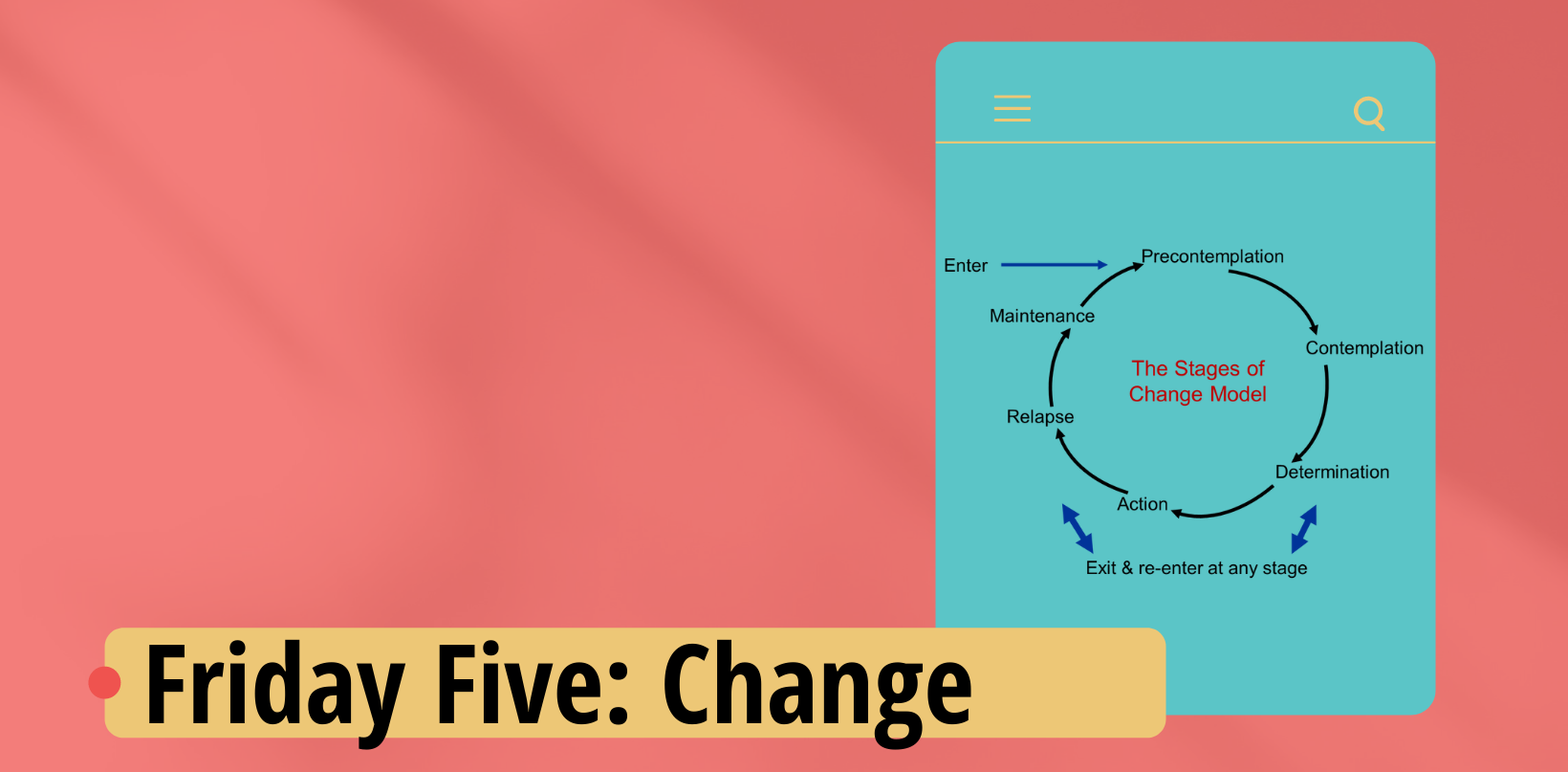With the end of year reflections and new year resolutions on the horizon, this edition is an effort to help you think about: Change
In psychology, The Stages of Change (Prochaska & DiClemente; see also: Transtheoretical Model of Change) is a model for understanding how people change through six stages: precontemplation, contemplation, preparation, action, maintenance, and relapse. The model was created out of research into smokers and cessation/habit change efforts and implemented into intervention programs based on human behavior. Subsequent interventions with this model have been used successfully for seatbelt usage, for high-risk behaviors within HIV communities, with exercise and diet adherence, and in sport with the implementation of mental skills training (*wink*).
As the psychologist, Carl Rogers opined: “The curious paradox is that when I accept myself, just as I am, then I can change.”
Change is pain.
Several years ago, I listened to a podcast with Michael Gervais as a guest, and he said something to the effect of the greatest motivator of change is pain. And wow, that just stuck with me – and still does. In another podcast episode last year, Gervais says the following: “…there needs to be enough pain for change to happen because change requires real work.” As it goes, suffering is part of the human condition. As my first mindfulness guide asked: What are you suffering from?
Name your feelings!
Mindfulness is oftentimes tossed around as a buzzword replacement for what is actually awareness. Listen to Dan Harris talk about his journey to self-awareness and its connection to emotional management (there’s also a transcript on the page, if podcasts aren’t your thing!). What does this have to do with change? Well, you can’t change what you don’t know. Building awareness is a foundational aspect of change – and a foundational step in my mental skills training practice. {via The Atlantic}
I could think of things I’d never Thunk before, And then I’d sit down and think some more.
When you’re ready to move beyond the “Thinking” phase: The 3 Phases of Making a Major Life Change – while focused on the career/workplace, the three-part cycle presented in the article is transferable to all parts of life, including sport. {via HBR}
The Stoics were certainly onto something.
Motivation to act: Keep things simple. Automate your habits. Have a purpose. {by Darius Foroux, via medium}
Little fires everywhere.
You can’t change unless you change your life: I like to be direct (and I like that this article is as well). And look, the list suggested in this piece is not for everyone (I know that I am most certainly not choosing “wake up early”; choose what works for you!). The takeaway here is: Be intentional… and you don’t have to implode your whole life up at once to make positive change.
 Looking for someone to help guide you on the path of change? (Hi, that’s me!)
Looking for someone to help guide you on the path of change? (Hi, that’s me!)


Leave a Reply